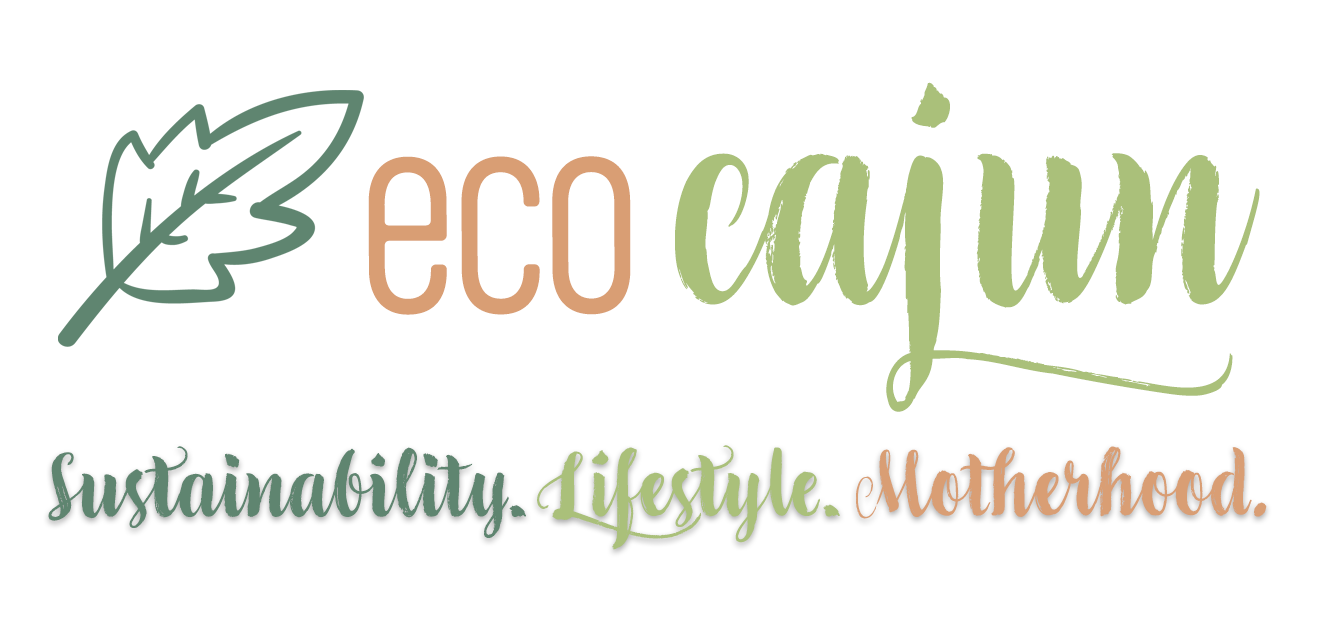The next day, I came home from work to find our driveway covered in a thin layer of oak leaves. I believe my response was something to the effect of, "Those trees better figure out how to tape their effing leaves back to their branches because I am NOT picking up any more! My legs ain't even recovered yet!"
Trees and I have a love-hate relationship.
So anyway, back to the point of this post. It's spring. And oak trees tend to dump their load in the spring. And there are lots of oak leaves around south Louisiana.
Bet you've got some yard work to dooo-OOO!
Did you think about those lawn and leaf bags? And how not eco-friendly they are?
Well, you will now!
Conventional lawn and leaf bags are made with plastic, which, as we know, is a petroleum-based product. They also take upwards of 100 years to break down (source: SF Gate). So those leaves inside will be long gone, but the bag will remain.
The alternative would be compostable and biodegradable lawn and leaf bags, made from sustainable materials, which break down in three months. Plastic is made from fossil fuels and the manufacturing process takes additional natural resources. Switching to compostable lawn and leaf bags keeps plastics out of the landfills and reduces the use of limited fossil fuel resources.
Break down those lawn and leaf bags...do ya get it now? AREN'T I CLEVER!? (Please don't go.)
On a larger scale, many cities have banned polyethylene plastic bags for yard waste removal, because polyethylene based plastic bags can not be composted with the yard waste or burned (source: BioBags). Houston and Nashville are two cities that require yard waste be bagged in compostable bags. Bayonne, NJ, even provided their citizens with compostable bags for fall leaf collection last year.
BioBags is the largest brand of compostable and biodegradable bags, ranging from lawn and leaf bags to grocery shopping bags, produce bags, food storage bags and pet waste bags.
Another key feature of BioBags is that they don’t require anything more than what already exists in an active compost pile to break down. Made from plants, vegetable oils and a compostable resin called Mater-Bi, the world’s first bio-polymer made from corn, the bags biodegrade in compost piles because microorganisms eat and digest these materials the bags.
Other brands include Lehman's and Green Paper Products. They can also be found at your local home improvement big box store, including this brand approved by the city of Houston.
Whether you bag your lawn clippings and leaves for your own compost bin or for curbside pickup, compostable bags are a good option for yard waste. Do they work? I can't personally answer that. But BioBags is a reputable company-when we visited San Francisco, the one disposable bag I encountered all week was a BioBag for my restaurant to-go box. While a box with a couple pizza slices is a little lighter than 400 million pounds of leaves, the bag still had sturdy consistency to it.
But it's really not helpful if your eco-friendly bags can't hold the weight of leaves and start ripping like boudin casing when you try to haul them to the curb, so it's important to do your own research before you switch. Take a look at which cities have banned plastic leaf bags and see which brands they either provide or recommend residents use. If they're an approved brand, they can't be too bad at doing their job.
Mother Nature Network says that they do work and have come a long way since first being produced.
One thing to remember is that you should not pack wet leaves or clippings in the bags, or let them get rained on. Because of their alternative materials, you may inadvertently start a compost pile right on your curb.
Have you tried compostable lawn and leaf bags? Did they work for you?







No comments